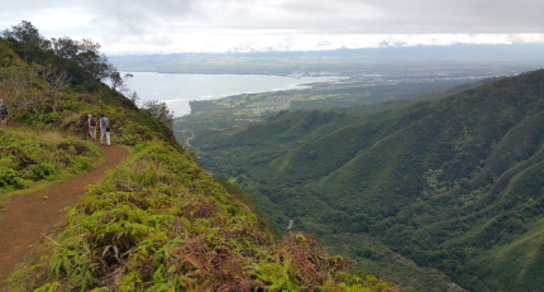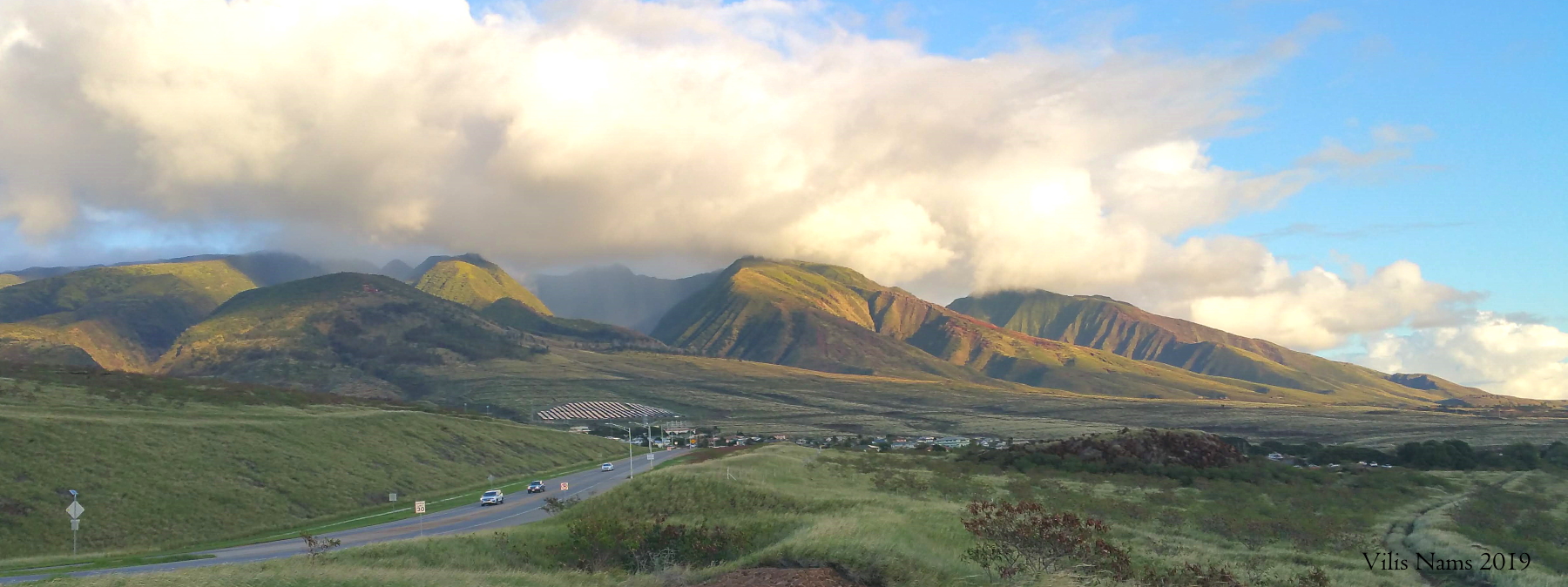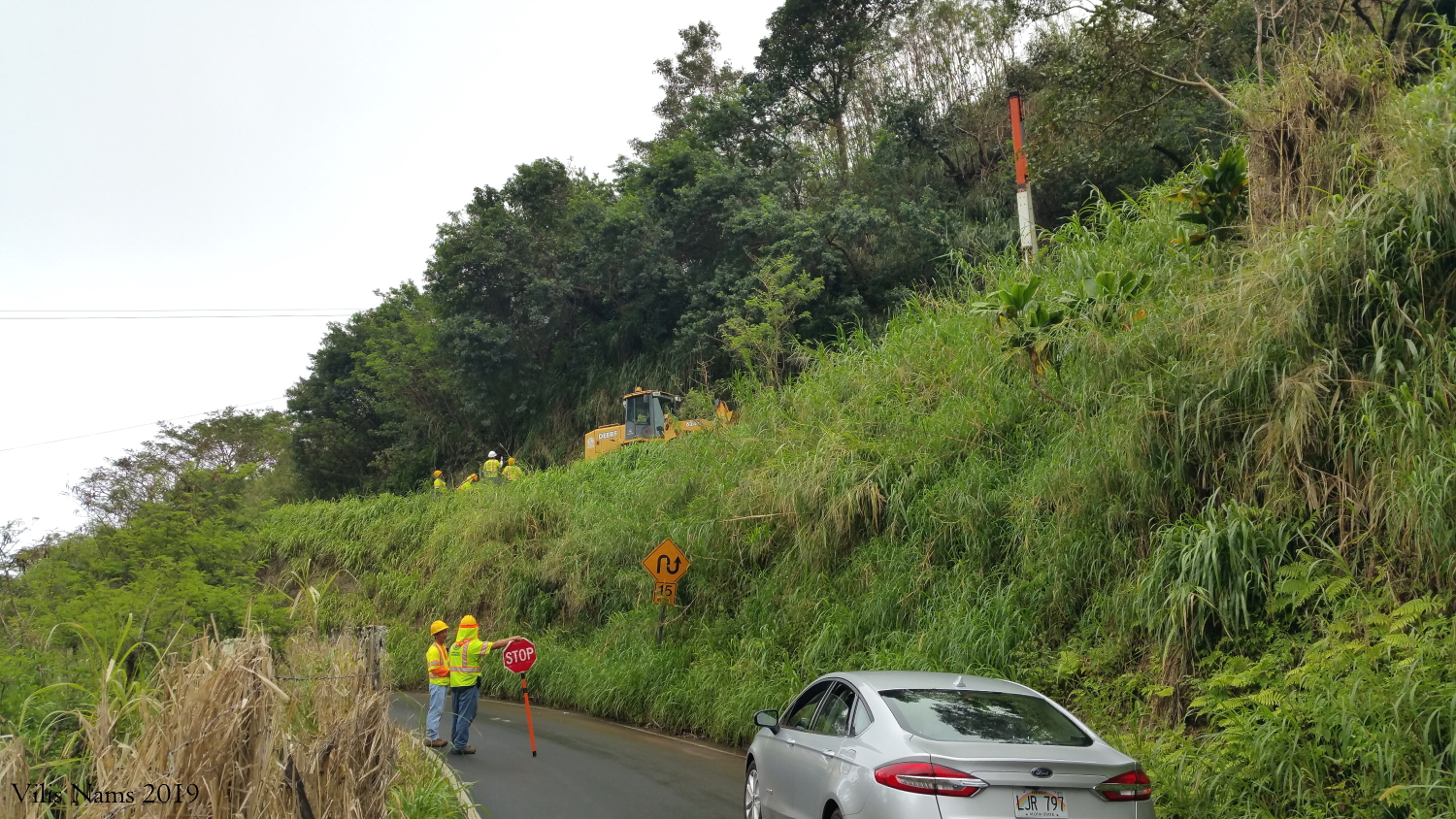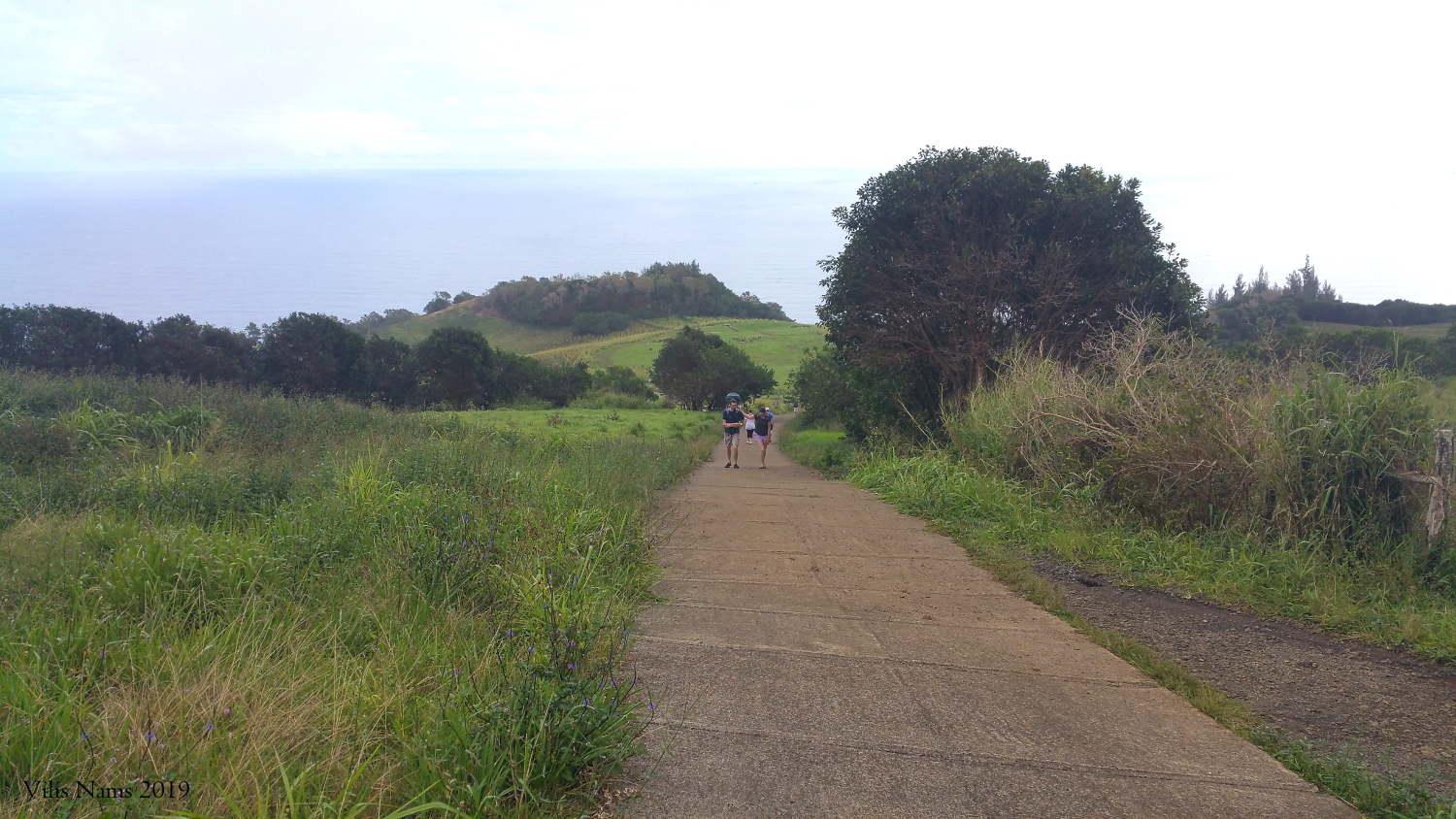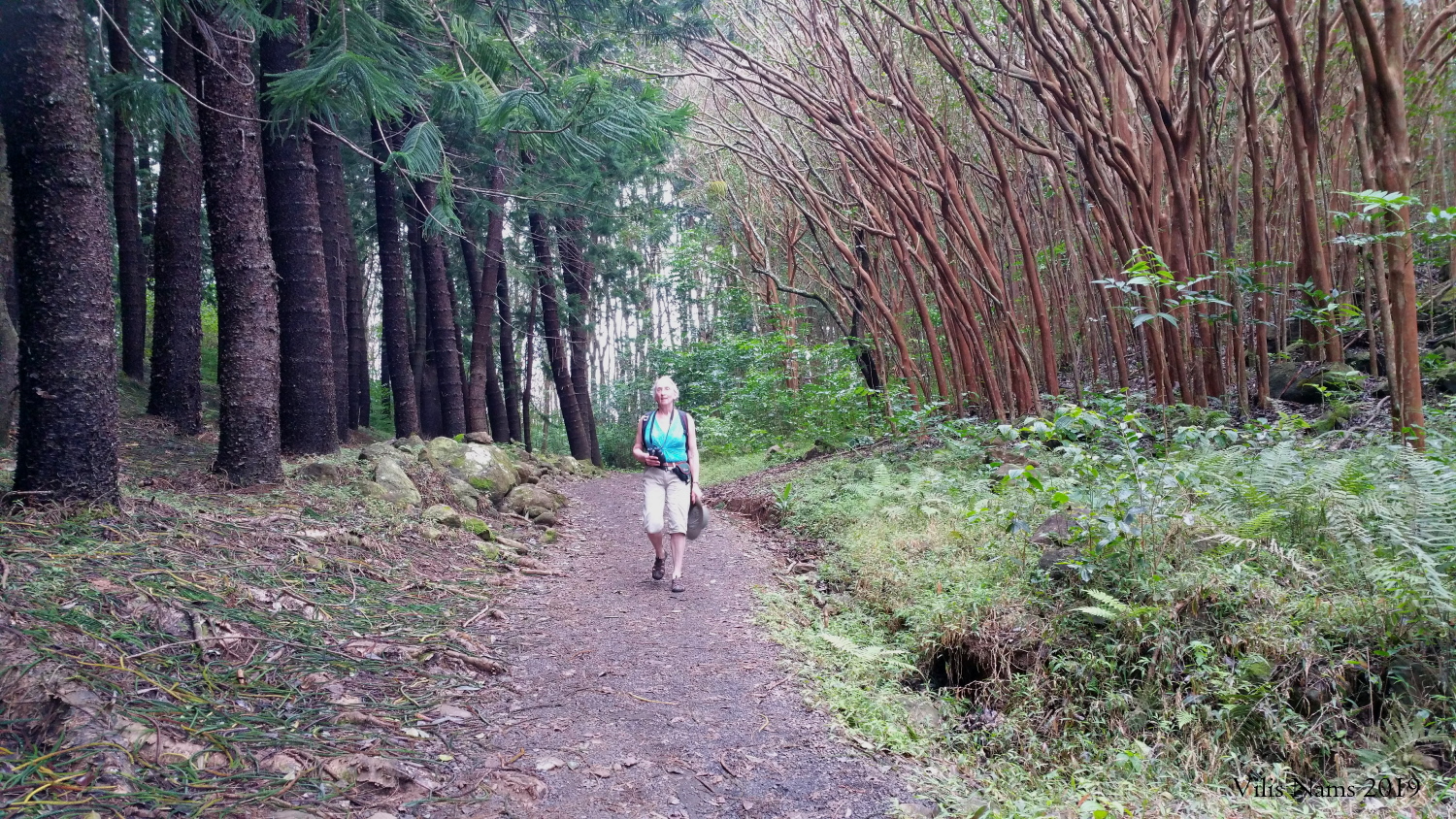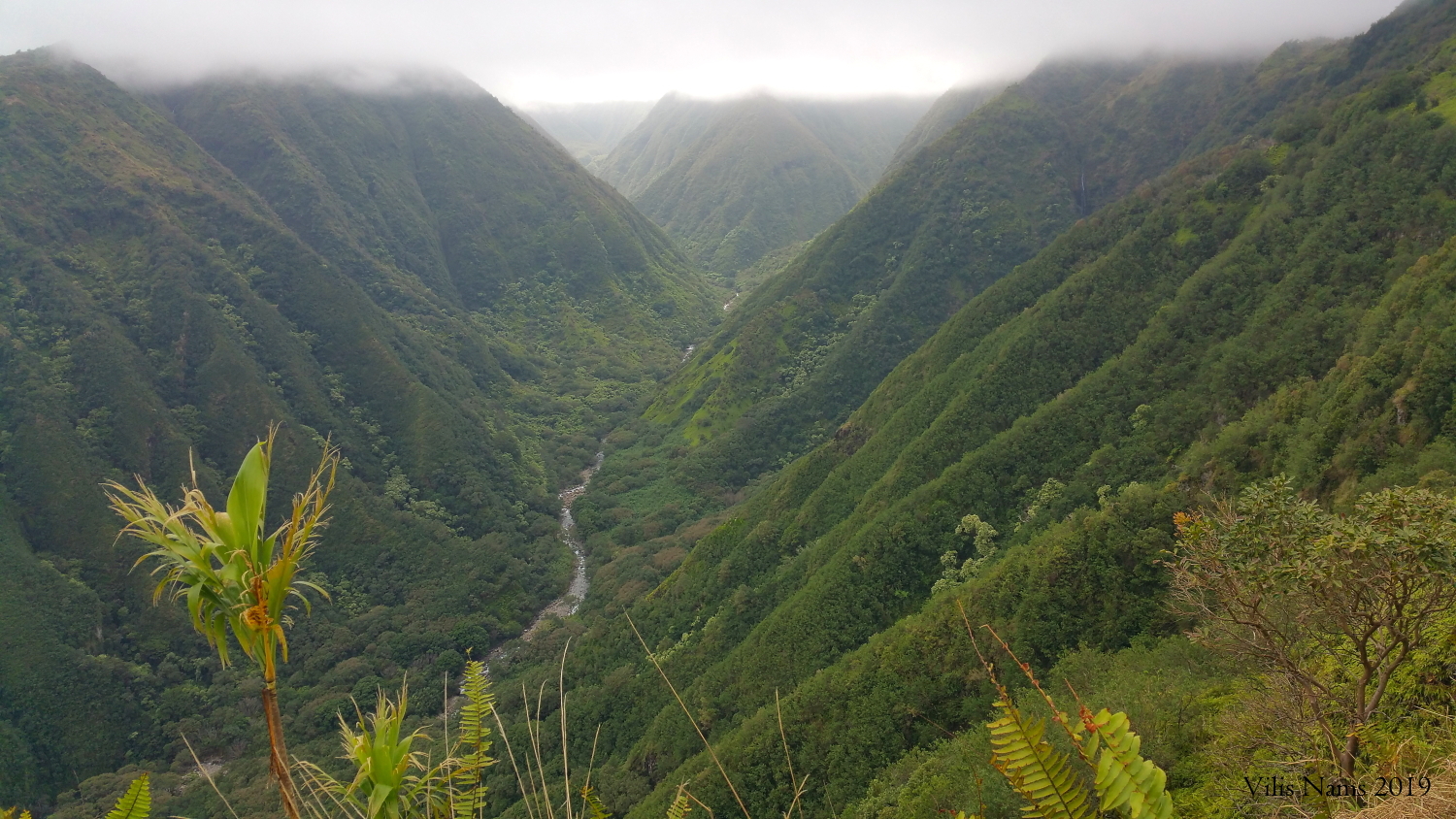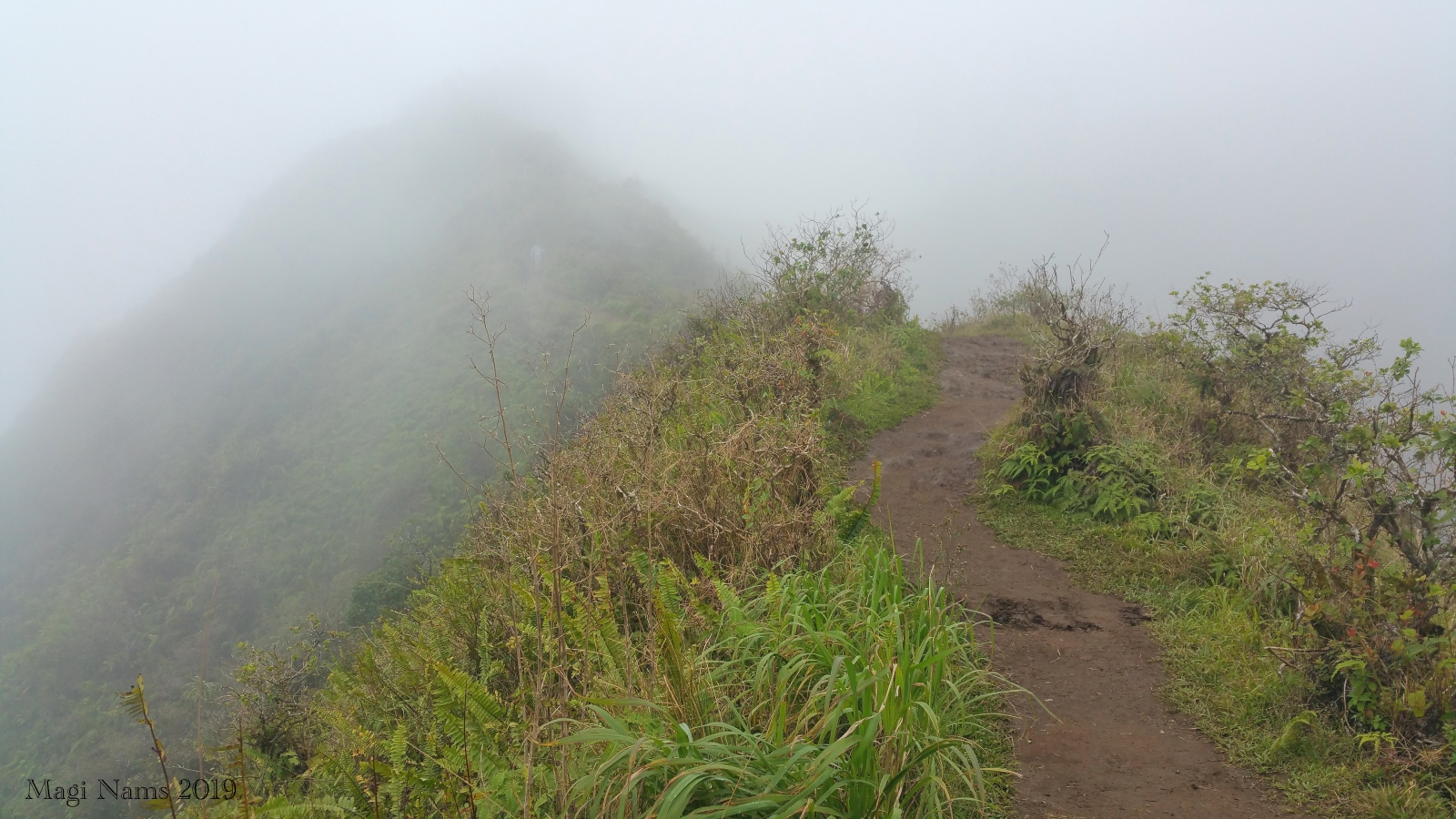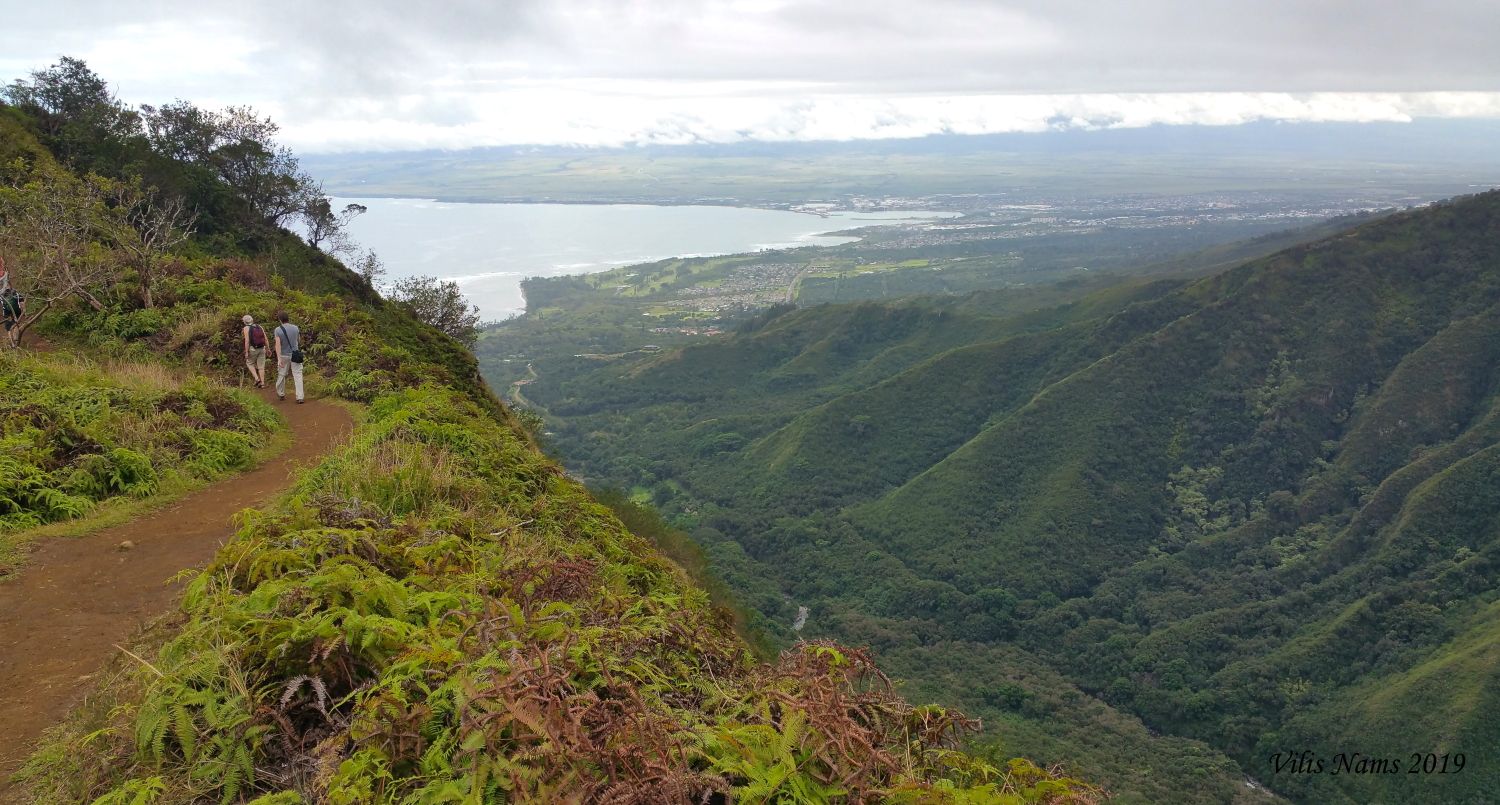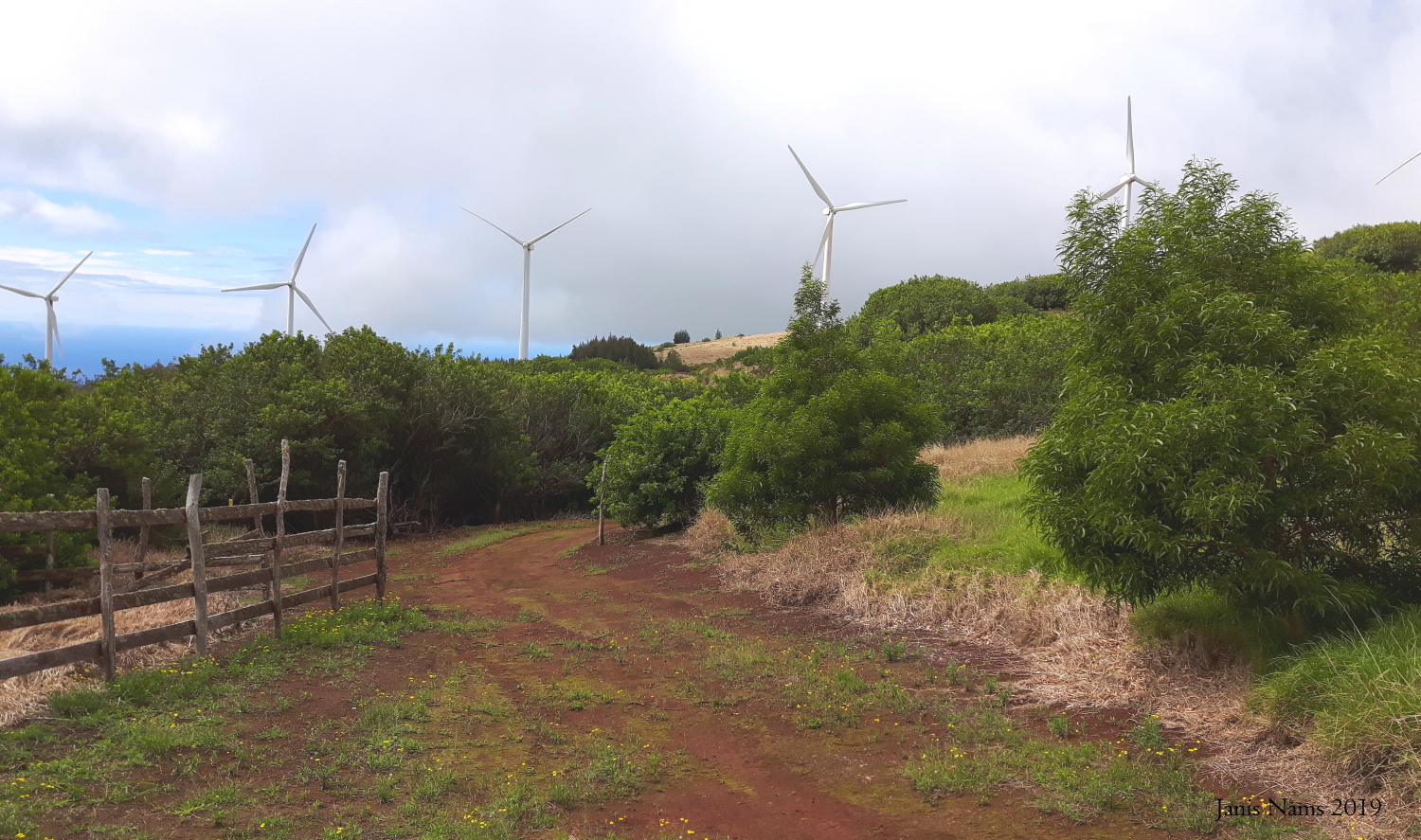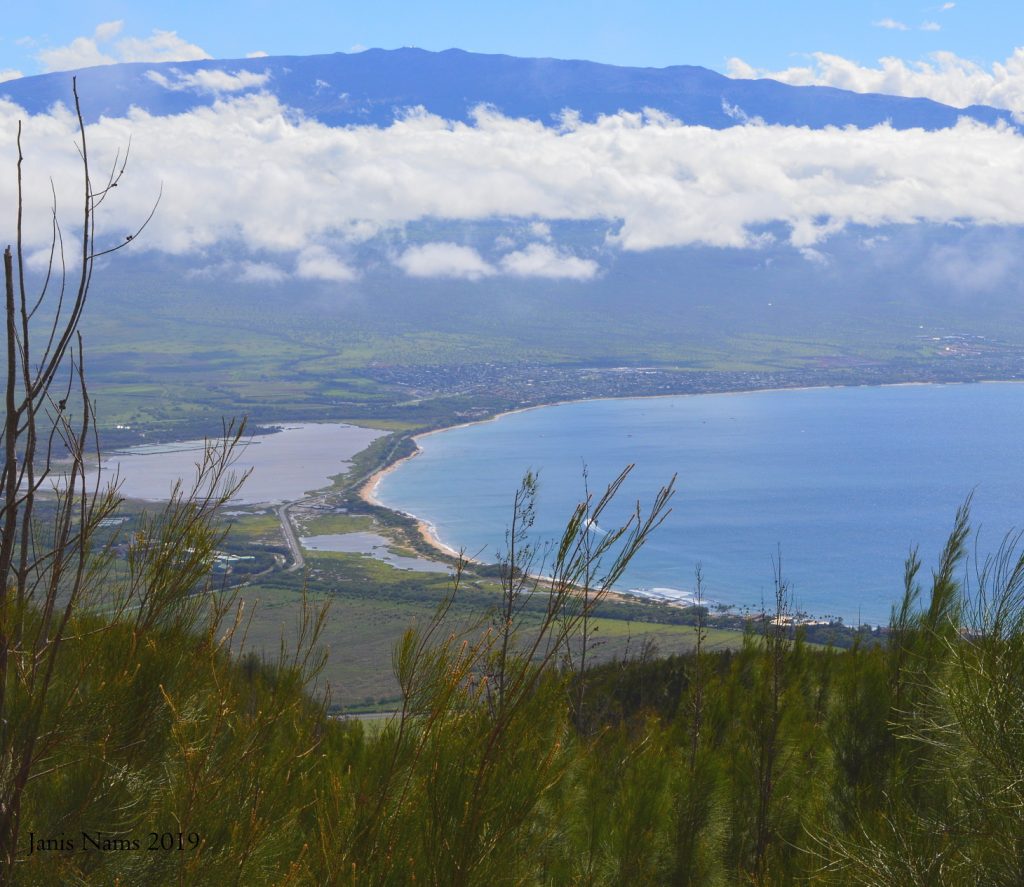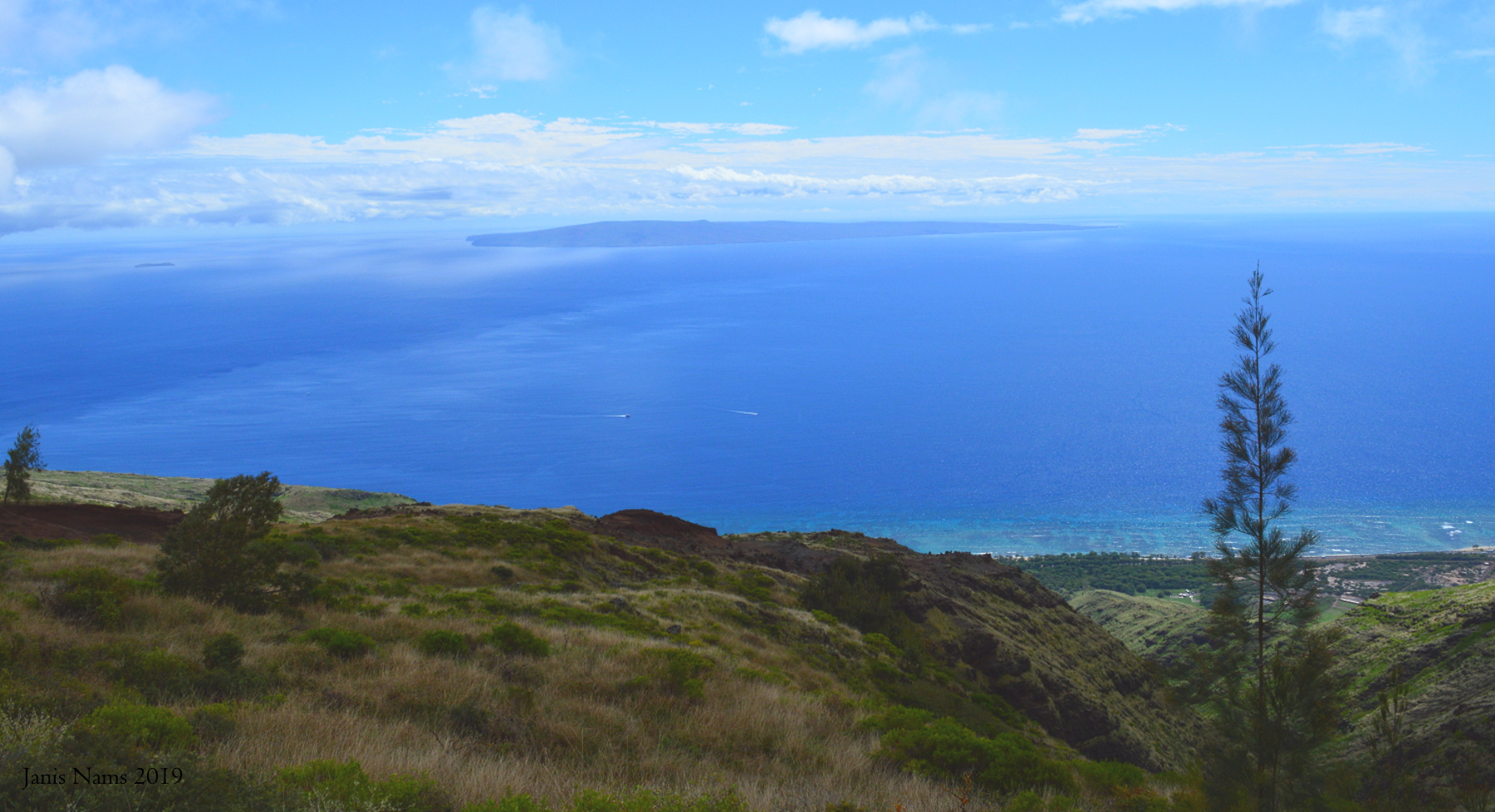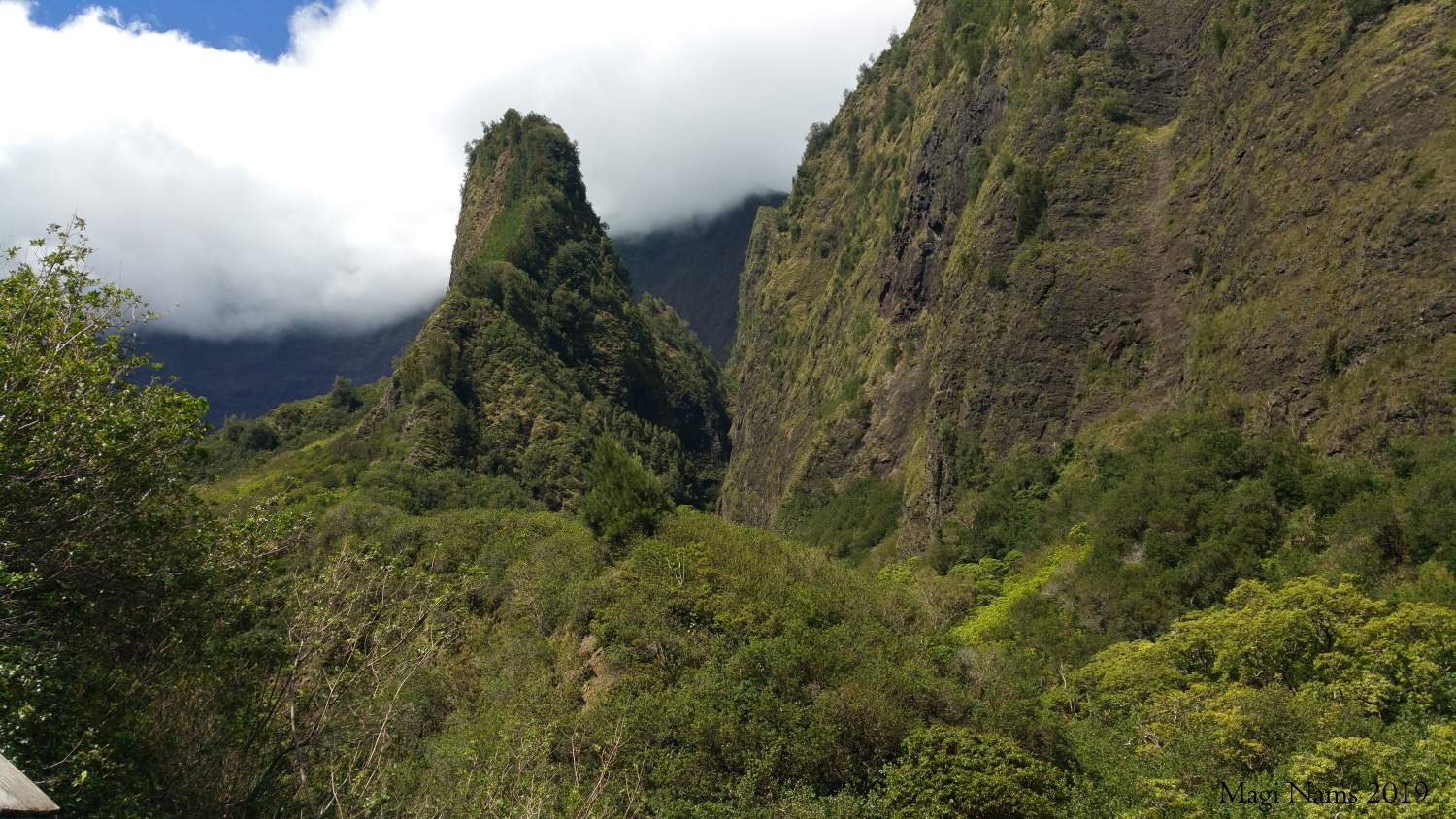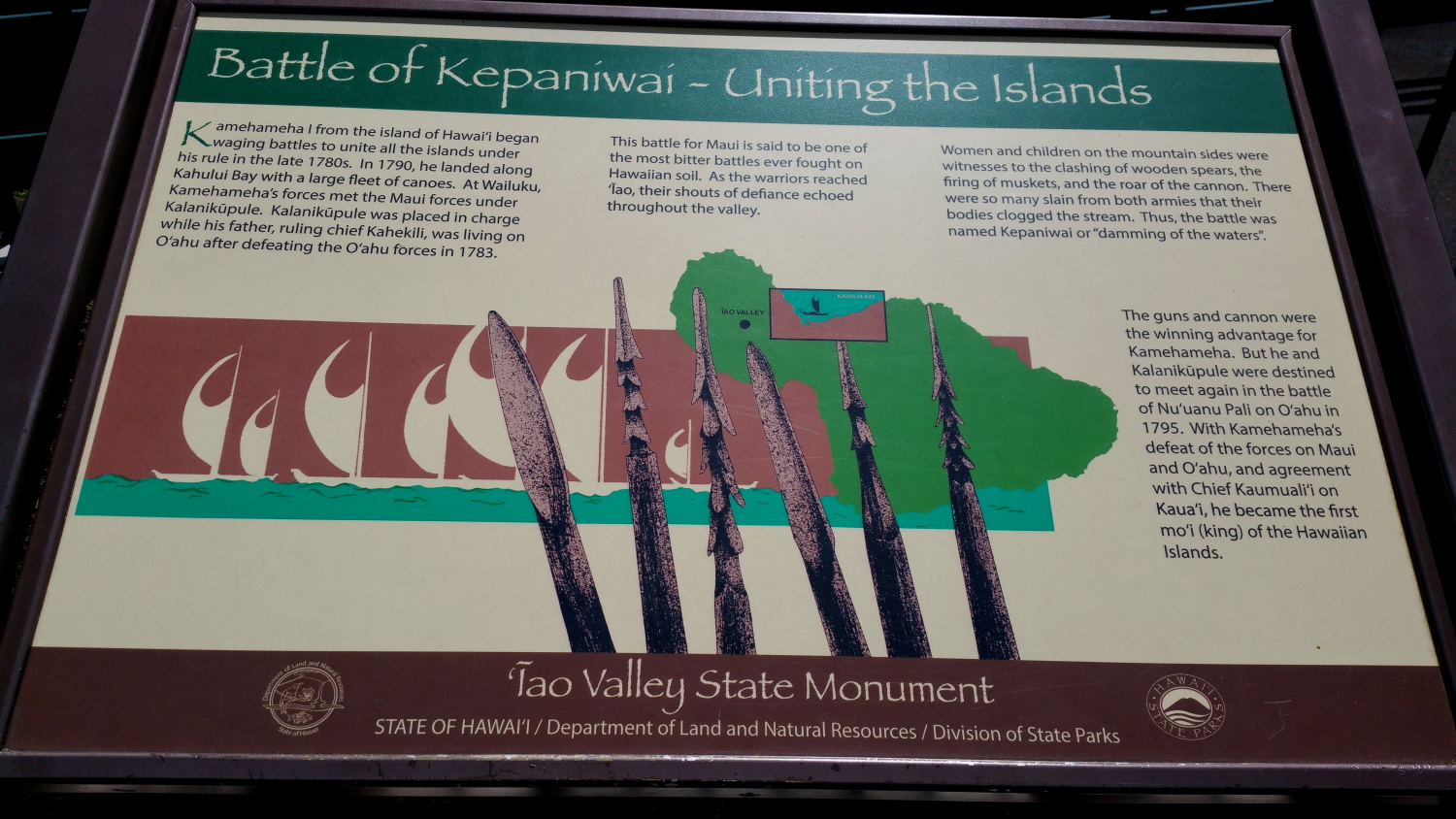Maui’s West Maui Mountains offer easy to challenging hikes with stunning views of razorback peaks, plunging valleys, and lush coastal scenes.
Today’s post is the second of three about hiking on the tropical, volcanic island of Maui, Hawai’i (see Exploring America: Maui, Hawai’i and Hiking in America: Coastal West Maui, Hawai’i). This post focuses on two moderately challenging hikes and a short, easy stroll in the West Maui Mountains. These mountains are the remnants of the extinct, heavily-eroded volcano, Pu’u Kukui, which comprises the big “bud” projecting from the northwest corner of the island of Maui.
Waihe’e Ridge Trail
Waihe’e Ridge Trail is a moderately challenging 5-mile (8 kilometre) in-and-out trail that gains 1500 feet (500 metres) and traces the spine of a razorback mountain ridge on the northeast side of West Maui Mountains. To access the trailhead, drive north from Kahului on Highway 340 and take the road to Maluhia Boy Scout Camp at around Mile 7. Follow the camp road to the trailhead, another .9 mile.1 Or you can drive tortuous, nerve-tingling Highway 30 around the top of the island from the west side of West Maui Mountains, which is what my family did in February 2019. Check out the tight switchback in the photo below.
Right off the bat, Waihe’e Ridge Trail’s steep ascent got our hearts pumping and our eyes sweeping the surrounding fields and pockets of shrubs, as well as the coastline. I spotted house finches and heard the raspy screech of a ring-necked pheasant (both birds are introduced species).
The broad trail narrowed to a dirt path that led us through mixed woodland of hardwoods and planted pines.
Once out of the trees, we hiked a narrow ridge that offered spectacular views of forested mountainsides and Makamaka’ole Falls to the north, and down steep inclines into lush Waihe’e River Valley to the south.
On the day of our hike, fog crowned the peaks of West Maui Mountains, completely obscuring the view at the trail’s hilltop summit on Lani-lili, at 2563 feet (855 metres).1 In the cool, misty air, we ate our bagged lunches and then hiked out, soaking up the expansive views on the way down.
Lahaina Pali
On the opposite side of West Maui Mountains, Lahaina Pali is a moderately challenging 5.5-mile (8.8-kilometre) trail that climbs over one of the old volcano’s southwestern flanks, reaching 1600 feet (565 metres) in elevation before descending.2
While the rest of the family went snorkeling, my younger son hiked Lahaina Pali, starting from the southern Ma’alea trailhead between Miles 5 and 6 on Highway 30 and ending at the northern trailhead near Mile 11. He walked about a half-mile in from the highway to the trailhead and then started to climb.
The first part of the trail (which used to be a road in the days of horse-drawn wagons) has a gentle grade, but that morphs into a constant, steeper grade en route to the summit.2 The trail led my son between gigantic wind turbines of the Kaheawa Wind Farm and onward and upward into fog-shrouded uplands.
With little in the way of trees to obscure the view, the hike offered far-flung views of central Maui and the volcano, Haleakalā, which comprises most of Maui’s land area.
Past the foggy summit, Lahaina Pali provided stunning views out over the ocean, revealing near-shore coral reefs and offshore islands. Although I was thrilled to snorkel among Maui’s green sea turtles and vividly coloured coral reef fishes while my son hiked, I would have loved discovering the views from Lahaina Pali.
Kūka’emoku
Also known as the ‘Īao Needle, Kūka’emoku is an erosion-resistant knife-edge ridge in ‘Īao Valley State Monument, 5.5 miles (8.8 kilometres) west of Kahului. To access the park from Kahului, take Highway 32 West and turn onto ‘Īao Valley Road.
A short, pleasant trail near the parking area traces the valley stream, with its natural swimming pools. Another climbs stairs to a scenic viewpoint that offers an exquisite view of Kūka’emoku. From an interpretive panel, I learned that in traditional Hawai’ian culture, Kūka’emoku is considered a fertility symbol of the ocean god, Kanaloa.
In a different context, Kūka’emoku served as a lookout for warriors during inter-island wars (see photo of interpretive panel shown below). For me—a Canadian taking a reprieve from snow and frigid temperatures—the jutting rock needle cloaked in lush plant life epitomized the exotic, tropical essence of Hawai’i.
References:
- Andrew Doughty. Maui Revealed: The Ultimate Guidebook, 8th edition. 2018. Wizard Publications Inc., Lihu’e, Hawai’i, p. 216.
- Ibid, pp. 216-217.

